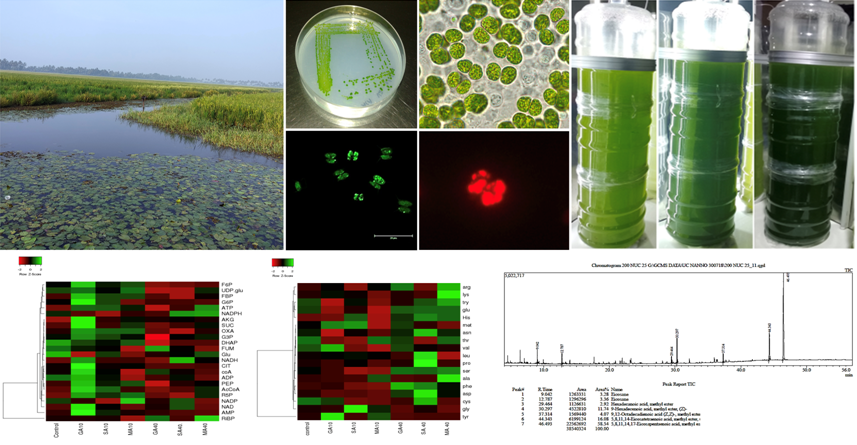Polyunsaturated Fatty Acids (PUFA) and Nutraceuticals from Algae

Photosynthetic organisms are the primary producers of PUFA and the major producers of docosahexaenoic acid (DHA), eicosapentaenoic acid (EPA) are algae. These PUFAs are essential in the metabolism of animals as they are implicated as the starting material for synthesis of several signalling molecules. The dietary content of such fatty acids are therefore important in both humans and other animals.
Fish oils while currently are the major commercial source of PUFAs, the declining fish stock and increasing preference for vegan sources have led to intensified research on algal sources of PUFAs, they being the primary producers. At MPTD, we work on both fresh water and marine microalgae as sources of EPA and DHA.
Processes have been developed for production of EPA and DHA enriched algal oils from select edible microalgal species. The processes have bene evaluated in photobioreactors and race ways and give excellent yields of the PUFAs.
Basic studies are also undertaken on understanding the regulation of energy metabolism associated with lipid synthesis in algae through LC-MS based metabolomics studies.
Another important activity under algal biotechnology is the production of Selenoproteins. Selenoproteins are a class protein with an essential trace element Selenium (Selenocysteine) with significant role in human health and relevance to several pathophysiological disease conditions.
Selenoprotein T from Scenedesmusquadricauda was shown for the first time with experimental evidence and compared with selenoprotein T of the marine microalga Nannochloropsisoceanica. Along with selenoprotein T, all the associated machinery required to synthesis the selenoproteins were also identified. Ongoing studies try to understand the synthesis of selenoproteins in micro algae and for developing processes for production of selenoprotein enriched algal biomass and selenoproteins for nutraceutical applications
- Research Area :Microbial Processes and Technology

